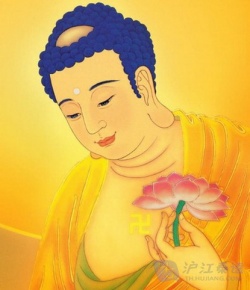The Pith Instructions Briefly Summarized: put the Five Strengths Into Practice
If we possess these five strengths, Bodhicitta will arise in us.
The power of resolution. This is, for example, the taking of a firm decision that, for this month, this year, until we die or until we attain enlightenment, we will not abandon Bodhicitta; even though hurt or injured by others, we will not give way to anger. And this strong resolution should be reinforced again and again.
The power of familiarization. In the beginning, meditation is difficult but it becomes easier if we persevere in it. For as the saying goes, "There is nothing that one cannot get used to." Once upon a time, there was a very miserly person unable to give anything away. He went to see the Buddha.
'It is impossible for me to be generous', he said, 'what shall I do?'
'Imagine,' the Buddha replied, 'that your right hand is yourself and your left hand a poor unhappy person. Give from your right hand to your left some old food, which you don't like or need. Try hard to get used to this. Do it until you are no longer miserly.' The man began the practice, but he was so tight-fisted that at first he could give away only a few left-overs or food he did not like. Gradually, however, he acquired the habit so that the day arrived when he did not feel so niggardly. Thereupon, he went to see the Buddha and reported, 'Now when I give food from my right hand to my left, I don't feel so miserly.' Buddha replied, 'Now, with your right hand, which you take to be yourself, give some gold, silk or fine clothes to your left hand, which you imagine to be a beggar. Try to see if you can give open-handedly, without avarice.' The man tried and when he got used to it he went again to see the Buddha. 'Now, you can be a benefactor,' the Buddha said, 'you are free from attachment; you can give away food and clothing to those who lack them.'
Freed from his miserliness, the man thus came to help many beggars and poor people. He gradually practised and in the end his generosity was steady, without any wavering. He understood that there is no point in being parsimonious or attached to riches. He became a monk and attained the level of an arhat. Through persistent practice one may likewise become accomplished in the two Bodhichittas.
The power of positive seeds. This is, in fact, the accumulation of merit. Going to temples and monasteries, performing prostrations and devotions before sacred objects, we should pray, "May I be able to cultivate the two types of Bodhicitta. May I be peaceful and without anger towards those who do me harm. May I be free from one-sided attachment for friends and relatives." By repeatedly praying in this way, and through the power of the Buddhas and Bodhisattvas, we will be able to accomplish these qualities.
The power of revulsion. Through careful thought it is possible to see that all the suffering and afflictive emotional states experienced in life are the results of the devastating flood of ego-clinging. Ego-clinging is the cause of every ill. Therefore when it arises, even if only for an instant, we should apply the antidote, like the doctor who gives us healing medicine when we are sick. As the saying goes, "Hit the pig on the nose; clean the lamp while it is still warm." When an angry pig rears up at us, if we hit it on the nose with a stick, it will immediately turn around and run away, unable to bear the pain. If we clean the butter lamp while it is still warm, the job is very easily done. In the same way, if we apply the antidote before our ego-clinging has gathered strength, we shall not fall under its influence.
The power of aspiration. Whenever we have completed some positive action we should pray, "From now on until I attain enlightenment, may I never abandon the two Bodhicittas. Whatever conflicts I may encounter, may I be able to use them as steps along the path." Praying in this way, we should make offerings to the Teacher, the
From Enlightened Courage, by Dilgo Khyentse Rinpoche. Copyright 1993 by Editions Padmakara (Padmakara Translation Group). Published and distributed by Snow Lion Publications. Used by permission.
